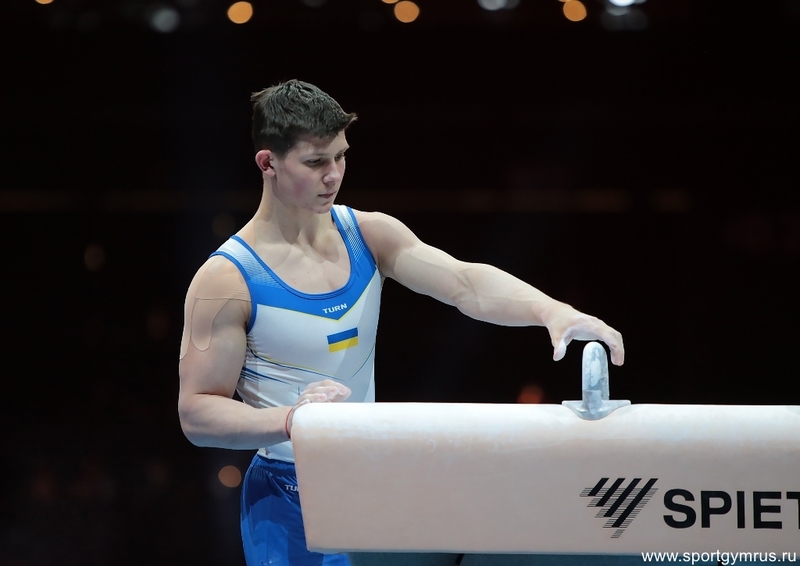When Illia Kovtun won five golds and a silver at the junior European Championships in 2020, it was clear that he is is capable of having an absolutely spectacular senior career. However, he was not necessarily expected to start winning medals already in his first senior season. A transition from junior to senior competitions can be difficult, since gymnasts need higher difficulty to be competitive and at 18 years old, they might not have enough strength and muscle mass to compete against older men.
At the senior European Championships this year, Kovtun qualified to the all-around final in 11th place, but managed to finish third in the final, behind Nikita Nagorny and David Belyavskiy. He placed 11th in the all-around final at the Tokyo Olympics. And finally, at the World Championships, he won bronze in the all-around final, after qualifying in 5th. It would have been hard for him to compete with China’s Zhang Boheng who won gold or the reigning Olympic AA champion Hashimoto Daiki who won silver in Kitakyushu, since he scored three points behind them, but he managed to surpass several experienced all-arounders who were also fighting for the bronze.
Ukraine has a long history in men’s artistic gymnastics, so it may come as a surprise that Kovtun’s AA bronze is only the second MAG AA medal at Worlds for the country. And the first one was won quite recently – in 2019, by Oleg Verniaiev. For years, Verniaiev was the main medal prospect on the Ukrainian team. He often competed injured or while recovering from surgeries because even in his less than perfect condition he was still a medal threat. His absence due to a doping disqualification was especially felt at the Tokyo Olympics, which the Ukrainian team left without medals. Now Illia Kovtun has to shoulder the responsibility of being the strongest gymnast on the team during his first senior season. He isn’t bothered by the responsibility, though:
“No, it doesn’t affect me in any way. We are just training in order to show good results at competitions.”
After the final, he was still trying to process what happened and get used to his medal:
“I don’t feel yet that I’ve become a bronze medalist. I’m very happy with this medal, no one expected me to finish third.”
Kovtun said he enjoyed competing with spectators, unlike at the Tokyo Olympics where the stands were empty:
“It was much more enjoyable to compete, there were more emotions, more adrenalin.”
Kovtun has been praised as one of the hardest workers on the team by both his teammates and coaches. Oleg Verniaiev reiterated on Instagram that Kovtun’s medal was not a stroke of luck but a result of hard work in the gym:
“Whoa, what’s happening… I could say that this is a historic medal but no, it’s rather the result of systematic and consistent work of people who work hard in the gym and don’t say that someone is always interfering with them. I want to congratulate all our team. Of course, it’s harder [for me] to watch competitions that to compete, but I’m very proud of you. To win such an important all-around medal at the World Championships at 18 years old is already amazing.”
Photo: Russian Artistic Gymnastics Federation



